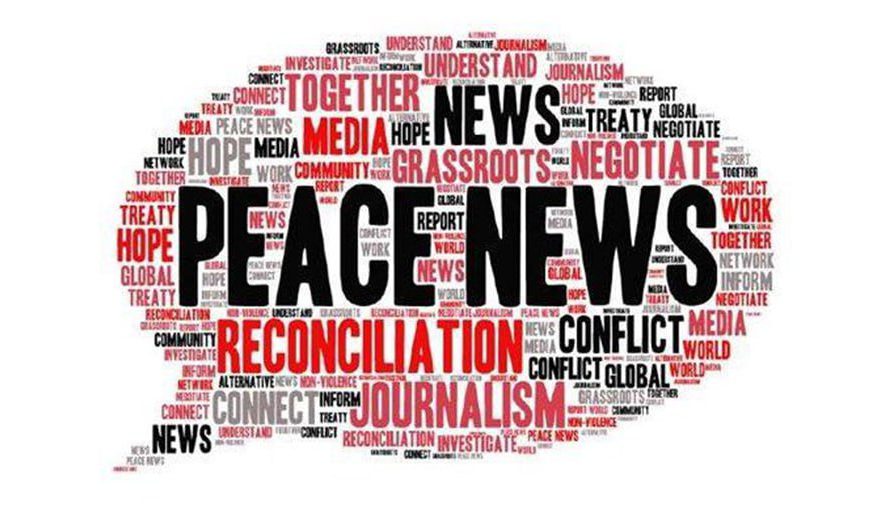
BY TEWODROS KASSA
Media, used to be said the fourth power, is a viable tool to transmit any message to a wider audience so swiftly and easily. However, depending on the way it is administered and managed, media can influence society negatively or positively. Owing to this, different countries have created a conducive environment and directives to utilize media responsibly and understandably. At the same time, some countries face difficulties due to the wrong utilization of this important sector.
The Rwandan media are among the leading ones that are mentioned and blamed in this regard- for their destructive role in spreading hate among the communities and being a main reason of the genocide. As documents indicated, the news media (a popular local radio station) played a crucial role in promoting violence against the Tutsi minority population and fuelling Rwanda genocide in 1994.
The other way round, different studies indicated that media can be a great assistance in conflict management and peace building. The media can be a good tool in a healthy and functioning environment; but more is needed than ethical and responsible reporting to ensure lasting peace and safety. The media report and reflect on pressing issues and can help to question established concepts and ideas. However, the potential of the media in conflict and post-conflict situations remains a net positive and has been sadly underutilized to this point in time.
According to the studies, the media can therefore not only influence society before the conflict by recognising and properly addressing the issue; but also can play a constructive role in preaching peace during post-conflict periods. Unlike international media covering conflicts, local media are a recognized part of society with the ability to accelerate and magnify fears or reduce them.
Moreover, lack of information can, at any stage of a conflict, make people desperate, restless and easy to manipulate. The ability to make informed decisions strengthens societies and fosters economic growth, democratic structures and the positive outlook on the future. For this very reason, the United Nations Millennium Declaration stressed the need “to ensure the freedom of the media to perform their essential role and the right of the public to have access to information” Recently, the Ethiopian National Dialogue Commission urged the media professionals to carry out their responsibility properly and in a civilized manner so as to ensure sustainable peace and stability in the country.
In an exclusive interview with The Ethiopian Press Agency, National Dialogue Commission Communication Head Yonas Adaye (PhD) said that the media have an enormous role towards changing the society’s perspective and building sustainable peace in the country. Deploying the media has also great potential to solve problems easily. “The media are playing constructive role in peace building and the dialogue process; and can explain the reality on the ground by spreading credible news. Thus, we should work together on this issue,” he noted.
“Ethiopia needs peace, not war. Thus, media professionals should explain this and work in a way that strengthens unity. Working together to get out of poverty, promoting mutual coexistence, and the culture of togetherness is important to maintain the socio-economic progress of the society. In terms of working with the media and making information available to the public in a sustainable manner is also expected from all government organizations”, he said. On his part, Hawassa University Journalism and Communication Assistant Professor Melisew Dejene (PhD) said that some of the western media’s low appetite for positive outcomes of the Cessation of Hostilities Agreement (CoHA), manifest their interest of prolong conflict in Ethiopia.
Western media’s insufficient coverage of post-conflict Ethiopia, the restoration of infrastructure and essential basic services including electric, telecom, and internet service as well as other positive developments emanate from their obsession with conflict and crises. The Expert further noted that some big media misinform the international community by magnifying the humanitarian crises and blaming the Ethiopian government for human rights violations without evidence. The reports of some media houses regarding the conflict in the northern parts of Ethiopia deviated from the principles of peace journalism and attested to the fact that the outlets are instruments of hidden interests.
Noting the post-conflict developments in Tigray State would have kept Ethiopia attractive to the international media, Melisew emphasized the need to exercise peace journalism to heal the wounds of those, from both sides, affected by the conflict. The consistent delivery of reliable and sufficient information to the corporate media is also something worth considering to easing biased reports. Sharing the above rationale, Media and Communication Lecturer at Jimma University Getachew Tilahun (PhD) stated the philosophy of Western media organizations on conflict reporting. “They are providing coverage to the peace agreement though it is unsatisfactory when compared with their conflict reports. The outlets have served their interest and we could not expect anything different from them.”
As to him, the political interest some Western powers pursue in the Horn of Africa is also another factor for big media houses to focus solely on conflict reporting. Mentioning the value of peace is always denied during peaceful times, he recommended the media to continuously inform the audience about the price of peace and the cost of conflict. Promoting peace journalism should be a prior responsibility of the media this time, he underscored.
THE ETHIOPIAN HERALD FRIDAY 24 FEBRUARY 2023





